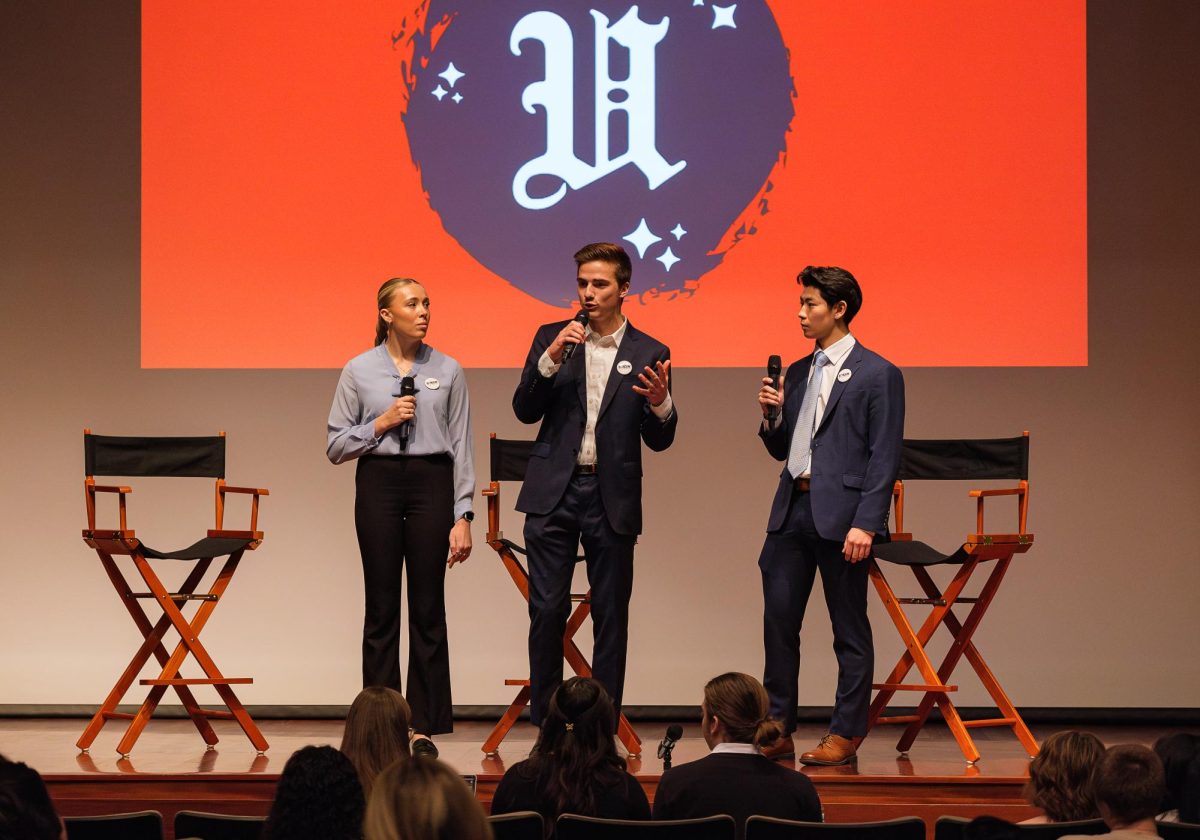Failures in Iowa Caucus Spread “Fake News” and Misinformation
April 7, 2020
On Feb. 3, 2020, the Iowa Caucus started and set out to give voters a glimpse into how the rest of the Democratic primary would go. However, misinformation caused confusion for some voters. The official results of the caucus did not come out until Feb. 9 due to various missteps that many blame on the Iowa Democratic Party and the Democratic candidates themselves.
Other aspects, such as different methods of vote counting and app malfunctions, heightened the amount of misinformation that occurred concerning the results of the Iowa caucus.
“We immediately had the Buttigieg campaign come out and say he won, the Sanders campaign claiming he won, and that was actually amplified by social media where the argument is to be made by both sides that they won because of the ambiguity around the counting rules,” said Geoff Allen, visiting assistant professor of political science at the University of Utah.
The caucus had three methods of counting votes — the first expression of preference, the final expression of preference and the number of state delegates awarded based on the final count. Allen said the three different ways provided a general lack of clarity in how they were going to declare a winner.
“That matters because Iowa is important, mostly because of its ability to set a signal as to who are frontrunners and who are not frontrunners,” Allen said, “In the grand scheme of things, it’s not going to end up having a huge impact mechanically on the outcome, but it can shape the way in which people perceive their options going forward.”
The unclear counting methods led to the spread of misinformation through social media.
The votes were meant to be recorded using a new app created by the company Shadow Inc., but the app failed in several aspects. According to NBC News, there was a high barrier to understanding the app and only a quarter of the caucus chair reported their results through it. Additionally, there were flaws in how it reported the data.
Some blamed the vote-counting app for the delay of official results.
“I don’t think that [the app] helped, but I don’t see that as misinformation as much as incompetence. I think the misinformation was really a result of a lack of clarity on the part of the Iowa Democratic Party on communicating clearly what the qualifications for winning were, when a winner would be declared, how long counting would take. The app made that harder because it was harder for them to communicate,” Allen said.
App failure and lack of results caused people to spread false information and create conspiracy theories about why it crashed. Pete Buttigieg’s financial connection to the firm that created the app caused some people to think he was behind the failures.
James Curry, associate professor and director of Graduate Studies in the Department of Political Science and co-director of the Utah Chapter of the Scholars Strategy Network, said he saw several people claim Hillary Clinton planned the whole thing.
Curry said the leaps of logic people made regarding the Iowa Caucus issues can be considered motivated reasoning, emotionally-biased reasoning that relies on what someone desires to be true instead of what is accurate. People will believe things that are damning about candidates and politicians they don’t like, true or not, he said.
“There tends to be an implicit assumption that when something doesn’t go right it must be scandal or corruption and not just some sort of human error,” he said.
He also talked about how the effects of misinformation are difficult to measure, because people are driven by their partisan attachments, so they are more willing to believe misinformation that typically reinforces their political leanings.
As far as how the false information began and spread, Curry cited two reasons. First, he talked about the possibility of it being Russian interference and Twitter bots spreading information to followers of candidates.
He also talked about how a lack of clarity creates openings for people to fabricate and spread these stories. The officials wanted to release all the numbers in a form of extreme transparency, but that did not happen.
“When you have that kind of confusion it really creates the kind of opportunities to play politics with,” Curry said.
According to Curry, politicians tend to say what they can get away with to score political points they need, such as Buttigieg declaring victory before any results were released or complete fabrications that are occasionally tweeted by President Donald Trump.
“I think it does carry more weight when it comes from a public official that some subset of voters believes in,” he said, “That is a major problem, in that you are likely to get more voters to buy into something that is misinformed or a falsehood or a lie when you have top public officials that are also members of their party broadcasting it out.”
Curry said on the mass scale it can be difficult to stop misinformation, but in individuals’ cases its important to be more critical about things one sees online, especially if it’s about someone that those individuals already tend to dislike.









